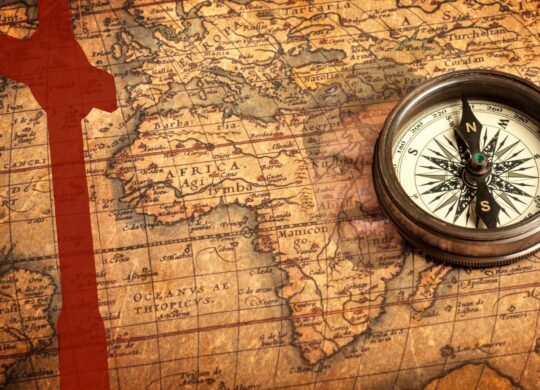Haze?

Waze, the popular GPS app, leads to brain haze. (And so do other GPS apps.)
So claim researchers at McMaster University, in “Orienteering Experts Report More Proficient Spatial Processing and Memory Across Adulthood, in Public Library of Science One.
Orienteering? That’s a group of sports requiring one to employ one’s navigational skills with a traditional map and compass to move from point to pint in unfamiliar terrain in the shortest time possible. In other words, using a specially prepared map and racing against the clock—orienteering, to get to a destination.
This is what our ancestors, hunter-gatherers, used to do for food and safety (without maps or clocks, of course). The human brain evolved thousands of years ago to adapt to harsh environments by creating new neural pathways in the cortex of hunter-gatherers. But we? We have food. We have GPS. No orienteering necessary for us moderns.
Apparently this outdoor sport can train the brain to make new connections, sharpen skills, enrich memory, and, importantly, stave off cognitive decline. The authors believe the physical and cognitive demands of orienteering can stimulate parts of the brain our ancient ancestors used for hunting and gathering.
Prof. Jennifer Heisz, Canada Research Chair in Brain Health and Aging at McMaster University, and senior author:
Modern life may lack the specific cognitive and physical challenges the brain needs to thrive. In the absence of active navigation, we risk losing that neural architecture.”
Losing one’s sense of direction is one of the earliest symptoms of Alzheimer’s disease.
For their study, the authors surveyed healthy adults between 18 and 87 years-old. People who participated in orienteering displayed better spatial navigation and memory skills, suggesting that adding elements of wayfinding into their daily routines benefited them over their lifetime.
So turn off that GPS because Waze causes haze.
But there is one place we must all be “orienteered” towards.
I rejoiced with those who said to me,
“To the house of Yahweh we will go.”
Our feet have come to be standing
within your gates, Jerusalem.
Psalm 122:1–2
While, no doubt, there would be rejoicing in the pilgrimage undertaken with fellow believers, here the gladness is in the acknowledgement of where they are all headed: to Jerusalem.
What happens there?
Jerusalem, that has been built
as a city that has a community all together;
there where the tribes went up, the tribes of Yah,
… to give thanks to the name of Yahweh;
for there thrones were sat [upon] for judgment,
thrones of the house of David.
Psalm 122:3–5
Worship of God and rulership by God (by Yahweh’s King, the Lord Jesus Christ, on the throne of David: “thrones” likely indicates the presence of vice-regents and viceroys or other subordinates and subalterns, reigning with him). Jerusalem becomes the epicenter of the worship of Yahweh, making it a location unlike any other on earth.
So what is being described is the people of God arriving at the place from where God’s King rules, and where the worship of the Godhead occurs. There will be an eternal (divine) King, and incessant worship of a great God, in a new Jerusalem. That will be a distinct reality, one that is coming to be … soon, and very soon!
Pray for the peace of Jerusalem:
“May they be secure, those who love you.
May there be peace be within your walls,
security within your palaces.”
Psalm 122:6–7
For that eternal day, God’s people yearn, for from Yerushalayim, there will be shalom for the world and for the cosmos!
Be orienteered to that place of peace!
SOURCE: Study Finds; PLoS One











 Abe Kuruvilla is the Carl E. Bates Professor of Christian Preaching at The Southern Baptist Theological Seminary (Louisville, KY), and a dermatologist in private practice. His passion is to explore, explain, and exemplify preaching.
Abe Kuruvilla is the Carl E. Bates Professor of Christian Preaching at The Southern Baptist Theological Seminary (Louisville, KY), and a dermatologist in private practice. His passion is to explore, explain, and exemplify preaching.
2 Comments
Amen!
… and “Amen!”